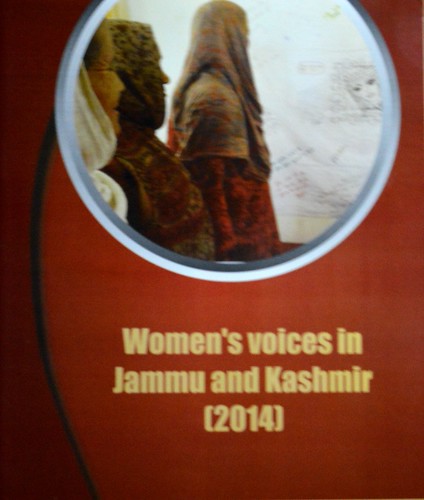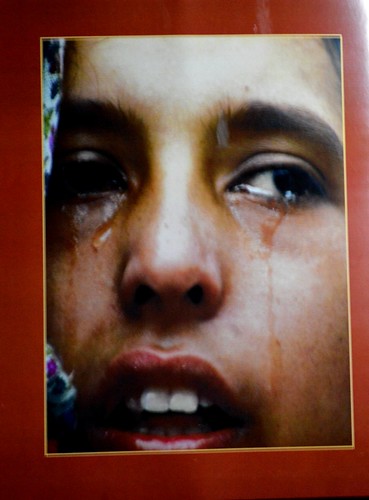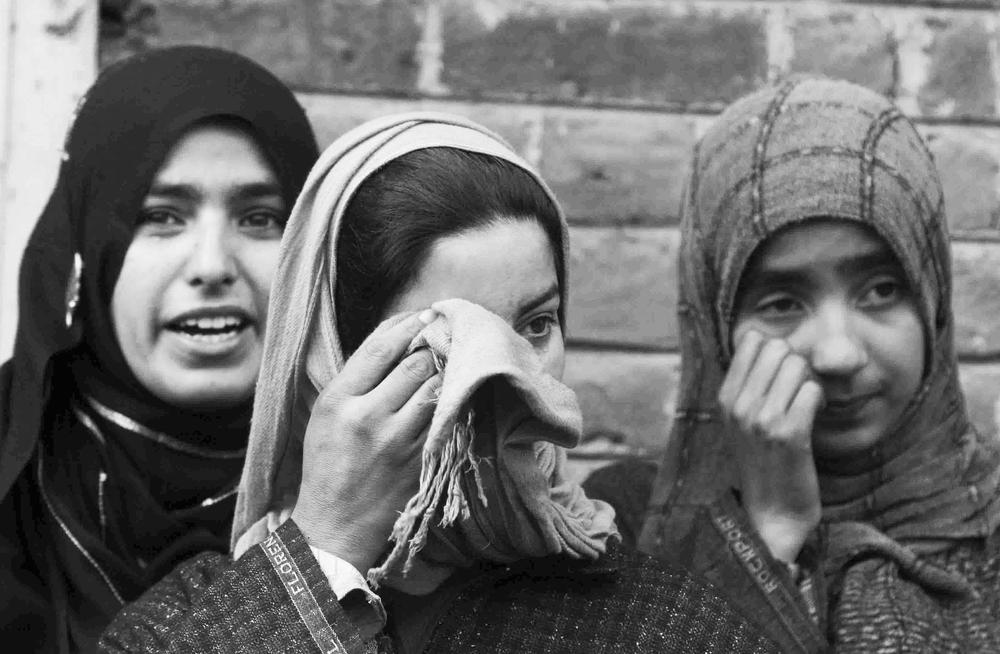By Raqib Hameed Naik, TwoCirlces.net,
Srinagar: All dimensions of life such as education, overall development, social life and health have been impacted the most due to continued conflict in the Kashmir valley, more than 50% women responded during a survey ‘Women’s voices in Jammu and Kashmir (2014)’.
“Interestingly, none of the respondents – of the total 520 across the state of Jammu and Kashmir – thought ‘governance’ to have been impacted the most.However, 51 % replied that all categories of people, including elderly persons, youth, children, women and men are vulnerable to conflict adversities while 24 % said youth, both male and female, are vulnerable,” the report released on Wednesday here said.

The unsettled Kashmir conflict which is long pending since decades has rendered women as worst sufferers. Brought out by EHSAAS, the report documents the consequences of this conflict that has left women physically, psychologically, socially and economically distressed.
EHSAAS is a non-profit and apolitical peace building group working for the welfare of women in Jammu &Kashmir. The survey has been conducted among a sample of 520 women respondents in Kashmir, Jammu and Ladakh regions of the state through questionnaire. Of these, 76 respondents were from Jammu, 65 from Ladakh and 379 from Kashmir; 277 respondents were married, 243 unmarried; 421 literate and 99 illiterate; 196 were working and 324 not working.
Major findings of the survey:
“Women are the worst sufferers of the conflict. They are sufferers of violence by state and non-state actors. The number of rape, molestation cases, enforced disappearances and the number of half-widows, half-orphans and orphans since 1989 bear witness to the fact that women continue to suffer immensely. Violence has badly affected them physically, psychologically, socially and economically,” thereport states.
“As many as 32 % of the respondents felt that Kashmiri women were more oppressed then women in other states. A total of 19 % felt it is so in some areas only and only 8 % felt there is no oppression of women. Of the respondents, 29 % felt that women living near army camps are the most vulnerable to the agonies of the conflict while 21 % felt it is women living near borders,” it said.

• What has been impacted most by the conflict?
A whopping 52% said all dimensions of life such as education, overall development, social life and health have been impacted.
• None of the respondents thought governance to have been impacted the most.
• Majority, 51 % replied that all categories of people including elderly persons, youth, children, women and men are vulnerable to conflict adversities while 24 % said youth, both male and female, are vulnerable.
• What is the most important problem faced by women?
• As many as 27 % respondents rated ‘economic dependence’, 18 % ‘domestic violence’ and 16 % rated ‘human rights violations’.
• On the role of women during the ongoing conflict
• More than 50% – 57 % of the respondents – repliedwomen have been victims, 21 % said they are victims, survivors, facilitators, perpetrators and protectors.
• On what can ensure peace?
• A total of 35 % respondents said complete ‘Azadi’ is most important for peace in the region; 20 % said it is political stability that can ensure peace and 9 % felt women empowerment is crucial for peace in the region.
• On being asked what is their idea of ‘Azadi’?
• As many as 54 % said political freedom, freedom from violence, injustice, poverty and freedom from India andPakistan.
•Who they feel disturbs peace process in the state?
• Only 18 % blamed just the government while 43 % expressed that militants, separatists, mainstream political parties, government and Pakistan are all responsible.
• Who is more responsible for human rights violations in the state?
• A total of 18 % said state and its policies; 28 % said armed forces, paramilitary forces and 35 % said armed forces, non-state actors, militants, state police personnel, state and its policies and political class.
• What is the main concern for the region?
• As many as 37 % felt that developmental imbalance is the main concern for the region while 28 % pointed out mental tension among women and 14 % believed it is domestic violence.

For representational purpose (Courtesy: aljazeera.com)
“Besides prolonged life threat due to Kashmir conflict, they also face economic depravity. It seems women’s voice is largely overshadowed by financial deficiencies. Women’s smooth life transactions are heavily impacted by domestic violence, aggressive treatments for trivial, negative social attitudes and increasing crimes against them,” the report stated.
Ezabir Ali, consultant, Women’s Project and secretary EHSAAS, told TwoCircles.net: “The opinions and views expressed are very diverse. There are views which put economic dependence as the most important problem of women and there are views which place human rights violations as the top most problem of women. There are women who say that conflict badly affected education and then there are women who say that development suffered badly due to conflict.”
Pertaining to social oppression factor, she said, “Women’s smooth life transactions are heavily impacted by domestic violence, aggressive treatments for trivial,negative social attitudes and increasing crimes against women.Besides, due to the continued conflict, the women have been experiencing an immediate threat to their lives, disappearance of their dear relatives as well as killings; kidnappings and other atrocities.”
